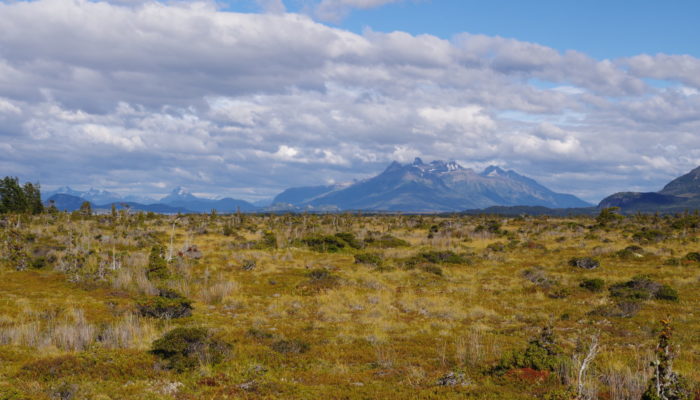
The EGU 2020 abstract submissions are open until January 15. Here, we’ll highlight the planned biogeosciences sessions. Stay tuned and find the session for your abstract!
Today’s focus is on Methane. Methane, a potent greenhouse gas, is steadily increasing in concentration in the atmosphere, prompting fears that it could scupper our chances to meet the global climate targets. But given its relatively short lifetime in the atmosphere, it also provides a potentially rapid opportunity for climate mitigation.
Two BG sessions explore global methane cycling further:
AS3.14 (PICO) co-organised by BG2: Atmospheric methane measurements – bridging anthropogenic emissions and mitigation. This session is convened by Stefan Schwietzke, Andreea Calcan, Bryce Kelly and Christopher Konek. The convenors say:
Methane is an important greenhouse gas that has contributed ∼25% of the radiative forcing experienced to date. Despite methane’s short atmospheric lifetime (~10 years), global methane concentrations have grown more than three times faster than carbon dioxide since the industrial revolution. This makes methane emission mitigation an effective way to reduce the short-term rate of warming. In contrast to carbon dioxide, anthropogenic methane emissions originate from a large variety and number of diffuse point sources that are mostly independent of combustion processes. As a result, systematic atmospheric measurements are needed to inform emission inventories and mitigation strategies.
This session will highlight research that focuses on methane emissions from human activities (e.g., fossil fuel infrastructure, fire, rice production, ruminants, landfills and waste). Particular emphasis is on studies collecting atmospheric observations at different spatio-temporal scales with the aim to (1) reduce the uncertainty in the measured magnitude of emissions, (2) identify source-specific emission patterns and mitigation opportunities, and (3) inform stakeholders, such as regulators and industry representatives, on mitigation pathways.
Then there is also BG5.2: Methane and its fate in the Biosphere – origin, source and cycling. This session is convened by Helge Niemann and Alina Stadnitskaia. The convenors say:
Methane is one of the most important greenhouse gasses with ever-rising atmospheric concentrations. While anthropogenic sources are comparably well understood, it is still a major scientific challenge to understand and quantify the contribution of natural sources. One reason for this knowledge gap is that (bio)geochemical and geological controls on methane dynamics in aquatic and terrestrial systems as well as the spatial distribution of methane in marine and aquatic sediments, soils and permafrost areas is not well constrained.
The topics of the session will include:
– methane formation (biological and geological processes)
– subsurface fluid flow and methane/hydrocarbon transport mechanisms
– ‘marine’ methane-rich systems: e.g. gas hydrates, shallow gas, cold seep-related systems
– ‘terrestrial’ methane-rich systems: e.g. wet lands (natural & artificial), lakes (from puddles to inland seas), permafrost areas and rivers
– methane-associated (bio)geochemical reactions, microbial communities and food web structures
– methane-derived carbonates and microbe-mineral interactions
– monitoring of methane emission
– methane in paleo environments
– methane and as a new alternative energy sourceWe aim at gathering scientists from the fields of geology, (bio/geo)chemistry, (geo)physics, modeling, (micro)biology and ecology, to evaluate our current knowledge of aquatic and terrestrial methane dynamics, interactions between element cycles and ecosystems, environmental controls and mechanisms.
If the global importance of methane, its environmental controls and potential mitigation pathways are interest to you, then consider submitting your abstracts to these sessions.
Post written by Joshua Dean and Alexandra Rodler
